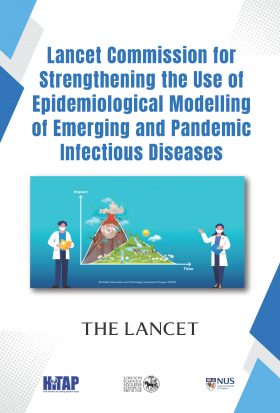This website uses cookies so that we can provide you with the best user experience possible. Cookie information is stored in your browser and performs functions such as recognising you when you return to our website and helping our team to understand which sections of the website you find most interesting and useful.
The Lancet Commission for Strengthening the Use of Epidemiological Modelling of Emerging and Pandemic Infectious Diseases

Details
Epidemiological modelling is an important tool to help public health planners understand potential disease outcomes in the population. The recent visibility of models and their perceived influence in the decision-making processes surrounding the response to the COVID-19 pandemic has led to a great deal of public debate about their usefulness. Making optimal use of these models to inform decisions requires addressing the hurdles that prevent it. These hurdles include the technical aspects of modelling such as identifying relevant parameters, making realistic assumptions for e.g., counterfactual scenarios, availability and quality of local data, adherence to guidelines, and review process, among others. Equally important is the environment surrounding modelling to policy exercise which includes infrastructure that informs models for e.g., surveillance and local data collection, governance and working relationships between decision-makers, their advisors, modellers, field epidemiologists among other interdisciplinary experts, ways in which results are made available and communicated to end-users, etc.
Frameworks currently exist to ensure the models are fit-for-purpose, reliable results are reported in a timely manner, and a collaborative approach to modelling ensures adequate representation from other experts. Nonetheless, several gaps exist including how policy questions are accurately translated into modelling questions to ensure outputs are relevant, how multidisciplinary experts engage in the model development and review process, and how model results and subsequent decisions are effectively communicated for better policy implementation and adherence.
Hence, this proposed Lancet Commission will focus to identify and address some of those gaps to improve the usefulness and impact of epidemiological modelling on policymaking and policy implementation.




